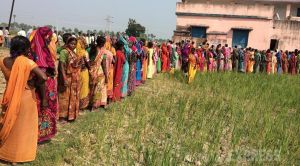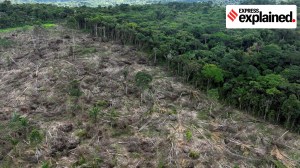Bush sends General tough message: Crack down on terror or we will cut aid
US Vice-President Dick Cheney made an unannounced trip to Pakistan today to deliver what officials in Washington described as an unusually tough message to General Pervez Musharraf

US Vice-President Dick Cheney made an unannounced trip to Pakistan today to deliver what officials in Washington described as an unusually tough message to General Pervez Musharraf, warning him that the Democratic Congress could cut aid to his country unless his forces become far more aggressive in hunting down al-Qaeda operatives.
Cheney’s trip was shrouded in secrecy, and he was on the ground for only a few hours, sharing a private lunch with the Pakistani leader at his palace. Notably, Cheney travelled with the deputy director of the Central Intelligence Agency, Steve Kappes, an indication that the conversation with the Pakistani president may have included a discussion of the American intelligence agency’s contentions that al-Qaeda camps have been reconstituted along the border of Afghanistan.
The decision to send Cheney secretly to Pakistan came after the White House concluded that Musharraf is failing to live up to commitments he made to President George Bush during a visit here in September. Musharraf insisted then, both in private and public, that a peace deal he struck with tribal leaders in one of the country’s most lawless border areas would not diminish the hunt for al-Qaeda and Taliban leaders.
Now, American intelligence officials have concluded that the terrorist infrastructure is being rebuilt, and that while Pakistan has attacked some camps, its overall effort has flagged.
“He’s made a number of assurances over the past few months, but the bottom line is that what they are doing now is not working,” one senior administration official who deals often with South Asian issues said late last week. “The message we’re sending to him now is that the only thing that matters is results.”
Reuters reported from Islamabad that a Pakistani official told reporters that in his few hours on the ground Cheney had pressed for more action. “He asked President Musharraf that Pakistan should do more,” said the official, giving no specifics.
The Vice-President’s office asked news organisations that knew of Cheney’s upcoming trip, and the small number of reporters travelling with him, to withhold any mention of his travels until after he had left the country. It was unclear if the request reflected Cheney’s well-known penchant for secrecy, or an increasing unease by the Secret Service about how freely al-Qaeda and Taliban operatives are moving in Pakistan.
Democrats, who took control of Congress last month, have urged the White House to put greater pressure on Pakistan because of statements from American commanders that units based in Pakistan that are linked to the Taliban are increasing their attacks into Afghanistan.
For the time being, officials say, the White House has ruled out unilateral strikes against the training camps that American spy satellites are monitoring in North Waziristan, in Pakistan’s tribal areas on the border. The fear is that such strikes would result in what one administration official referred to as a shock to the stability of Musharraf’s government.
Pakistan is now the fifth-largest recipient of American aid. Bush has proposed $785 million in aid to Pakistan in his new budget, including $300 million in military aid to help Pakistan combat Islamic radicalism in the country.





- 01
- 02
- 03
- 04
- 05


























